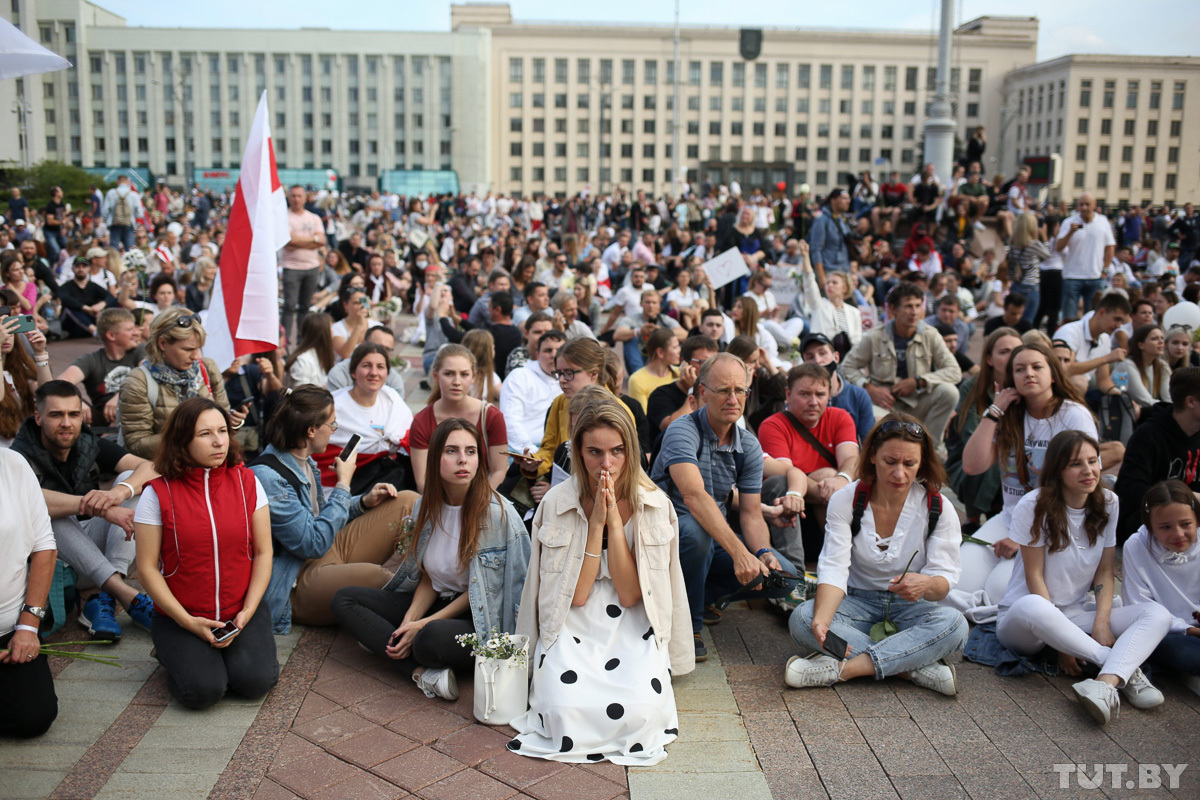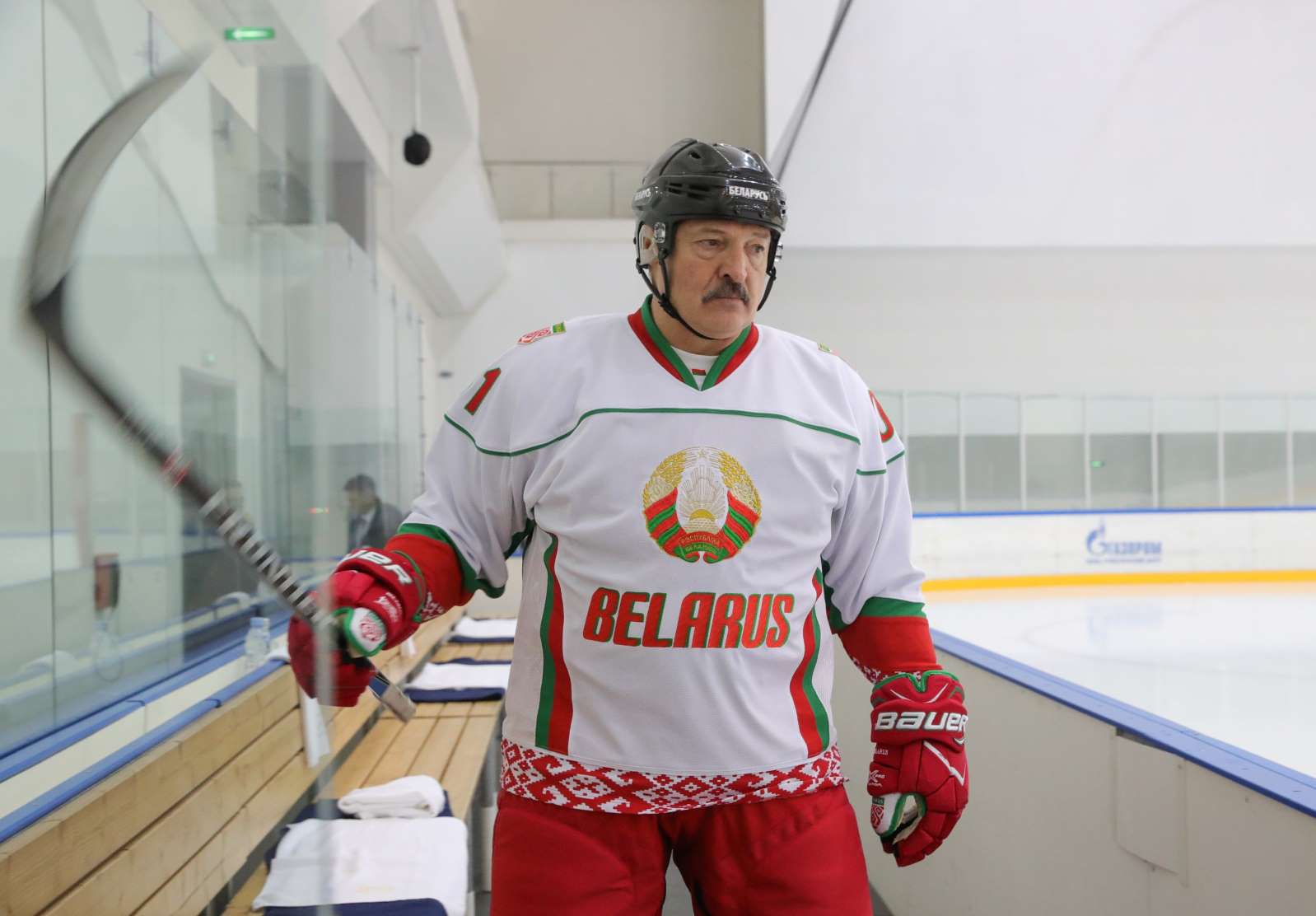August 2020
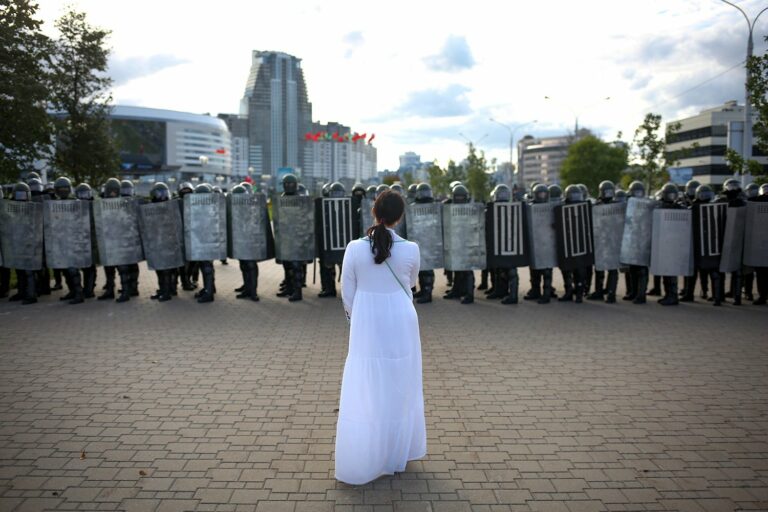
On 9 August, the lives of millions of Belarusians were forever divided into “before” and “after.” The presidential elections in Belarus, in which Sviatlana Tsikhanouskaya united the opposition and challenged Aliaksandr Lukashenka, were marked by large-scale falsifications and fraud. Indignation and frustration fueled massive protests all over the country, with thousands of people detained and injured in the ensuing crackdown. 5 people died. Sviatlana Tsikhanouskaya was forced to leave the country and continued political action from Lithuania. Despite the indiscriminate repression, tens and hundreds of thousands of peaceful protesters continued to participate
in daily protests and Sunday marches. A wave of strikes swept through state-owned enterprises where workers demanded an end to the beatings and torture, criminal prosecution of the perpetrators, and new elections.
- More from our coverage: What you need to know about the unprecedented Belarus presidential election, in a nutshell
- “It feels like we live in the Middle Ages.” Screams of tortured Belarusian protesters recorded near prison
- How Alyaksandr Lukashenka stole the Belarus presidential election
- The world’s first Telegram revolution: how social media fuel protests in Belarus
September 2020
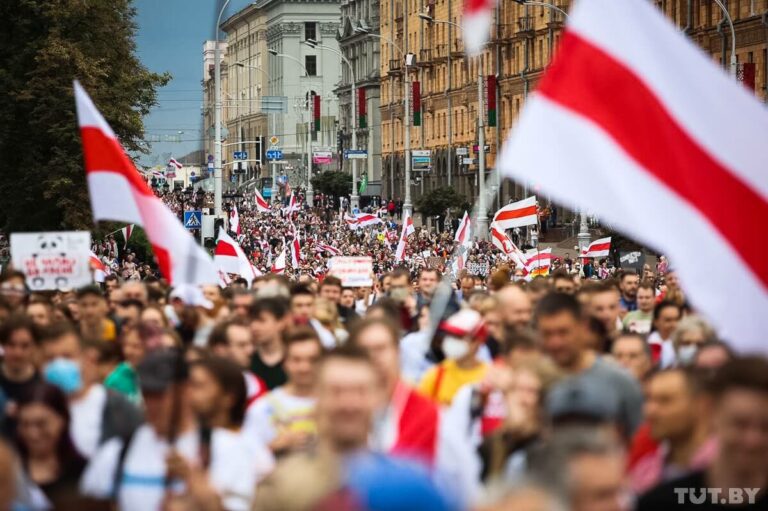
Students from major universities joined the ongoing peaceful protests. In addition to the large-scale Sunday marches, Belarusian women continued to go for spectacular walks on Saturdays. An attempt was made to forcibly expel the opposition leader Maria Kalesnikava from Belarus, but she tore her passport and refused to cross the border. The authorities started a fierce struggle against white-red-white symbols and urban yard parties. At the end of September, Lukashenka held a secret inauguration ceremony that was not recognized by democracies.
- More: Why are protesters in Belarus using the white-red-white flag?
- Ukraine rolls out official site to help Belarusian IT specialists relocate
- Meet the 73-year-old granny who became an icon of the protests against Lukashenka
- Lukashenka’s war against the free media
- Policeman who fled Belarus: Lukashenka’s siloviki brainwashed into supporting the regime
- Further evidence of post-election torture, beatings, and humiliation uncovered in Belarus
October 2020
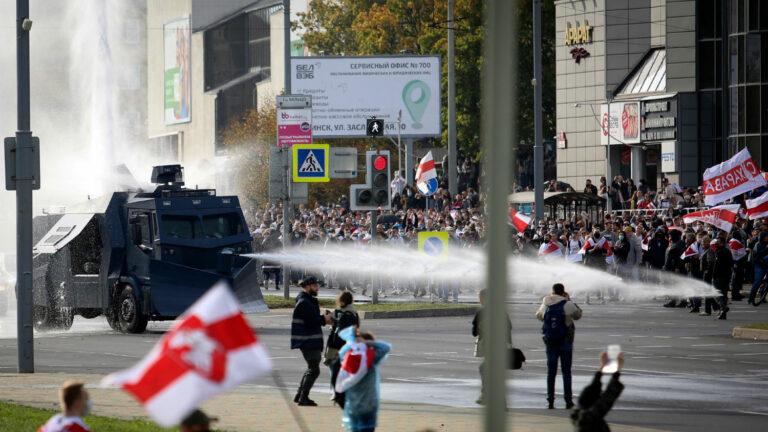
The EU countries added dozens of Belarusian officials to sanctions lists and recalled their ambassadors in Minsk for consultations. Lukashenka met with political prisoners in the KGB pre-trial detention center but did not release his main opponents. Sviatlana Tsikhanouskaya announced the People’s Ultimatum. Since the authorities failed to fulfill its requirements, on 26 October, another wave of strikes swept across the country. The weekly Sunday marches continued despite the brutal actions of the security forces. Senior citizens’ marches and protests of people with disabilities became a tradition as well. Former Minister of Culture of Belarus Pavel Latushka initiated the founding of the National Anti-Crisis Management in Warsaw.
- More: The trap of Belarusian economy: between Russian dependence and global uncompetitiveness
- Belarusian government reckons with two months of protests
- The rise of the Belarusians to defeat the dictator
November 2020
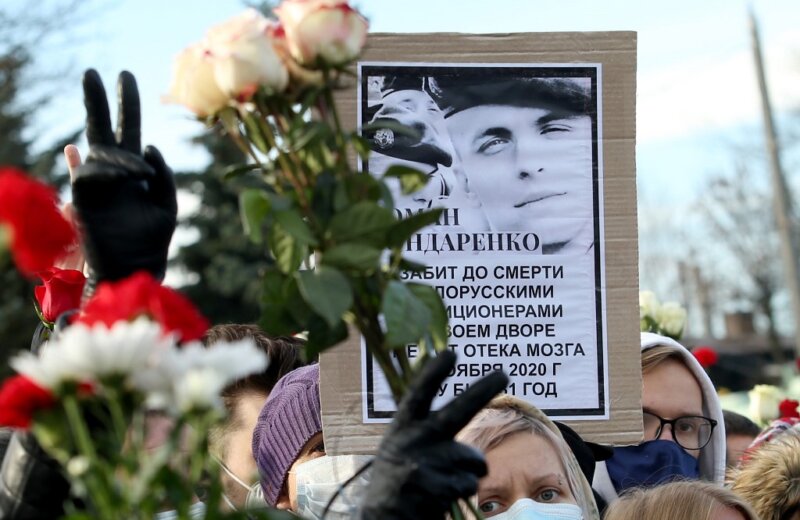
In November, protests and repression in Belarus continued: since the rigged presidential elections on 9 August, approximately 26,000 people had been detained. As many as 393 journalists had been arrested, beaten, or persecuted. Activist Raman Bandarenka, who had stepped in to prevent the destruction of the white-red-white symbols on the Square of Changes, was severely beaten and died from his injuries. International pressure on the Lukashenka regime increased significantly: the European Union imposed a second package of sanctions, the UN called for an independent investigation of the violence against protesters, and the OSCE published a strongly worded report condemning the fraud and calling for new elections by international standards.
- More: Lukashenka’s crackdown on protesters is increasingly brutal, over 1000 detained this Sunday
- Three months of Belarusian gridlock: do the protesters have a chance?
- Fear, horror, anger, despair, solidarity, apathy, and glee. 100 days of Belarus protests in photos
December 2020

Centralized marches began to give way to local protests which were harder to disperse. Sviatlana Tsikhanouskaya announced the launch of the Unified Crime Registration Book platform to collect evidence of torture and beatings. TUT.BY, the most popular news portal in Belarus, lost its accreditation. At a session of the Human Rights Council, 42 states condemned the Belarusian authorities’ repression against the independent press and called for the implementation of the OSCE report’s recommendations. The EU member states expanded sanctions, adding 29 individuals and 7 legal entities to the blacklist.
- More: The lessons of Euromaidan: why the Belarusian revolution is at a stalemate
- Former Berkut riot police from Ukraine now dispersing anti-Lukashenka protests in Belarus
- Why don’t Belarus protesters shun Russia?
January 2021
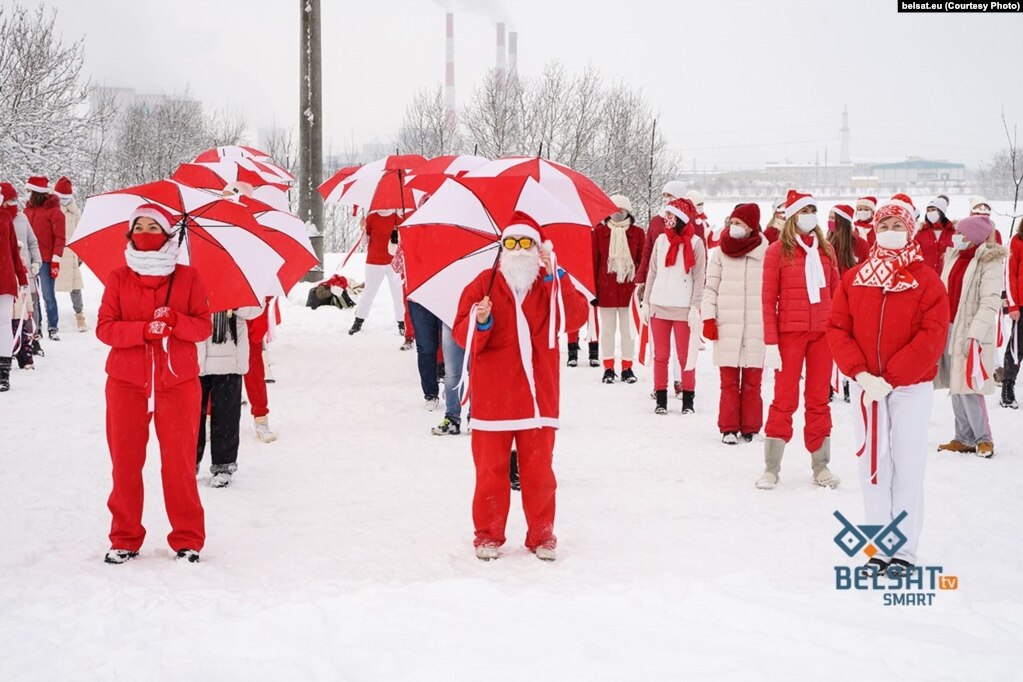
The BYPOL initiative published an audio recording of the head of the Main Directorate for Combating Organized Crime and Corruption, Mikalai Karpiankou, speaking to his subordinates in autumn of 2020, stating that Aliaksandr Lukashenka had empowered him to harshly suppress protests and had approved the use of firearms. Thanks to the active pressure of the Belarusian diaspora against the background of massive human rights violations, Belarus was stripped of its World Ice Hockey Championship hosting rights – despite a cordial meeting between Lukashenka and the IIHF president, René Fasel.
February 2021
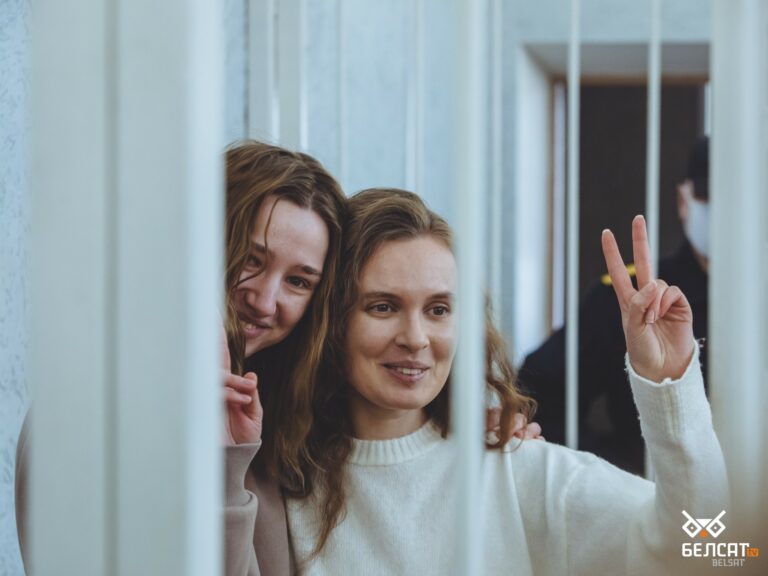
Exactly 6 months after the protests started, the united democratic forces abroad announced an open strategy of victory and outlined the path to negotiations. Within Belarus, however, the crackdown on independent media and opposition activists continued with renewed vigor. In particular, Belsat journalists Katsiaryna Andreyeva and Darya Chultsova were sentenced to 2 years in prison solely for a live broadcast from a protest in November 2020. UN High Commissioner for Human Rights Michelle Bachelet presented her report on Belarus's disastrous human rights situation.
March 2021

More than 770,000 people took part in the nationwide online vote on negotiations between the authorities and the opposition for a peaceful way out of the crisis announced by Sviatlana Tsikhanouskaya. Lukashenka’s opponents also called for the resumption of protests on 25 March, known as Freedom Day in Belarus. Due to the enormous risks for protesters, large-scale actions could not be held within the country. However, activists, politicians, and journalists worldwide took part in actions of solidarity with the people of Belarus.
- More: Why have two revolutions won in Ukraine but none in Russia or Belarus? Historian Hrytsak answers
- Why has Ukraine succeeded as a democracy, contrary to Russia and Belarus?
- A crash course on the Belarusian 1918 attempt at independence
April 2021
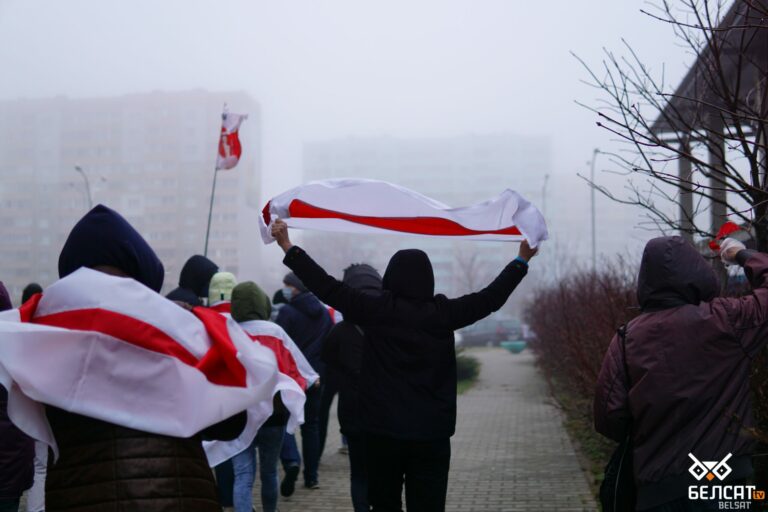
For the first time in Belarus, a criminal case on an attempted coup was opened: according to it, several opposition figures were allegedly plotting Lukashenka’s assassination. Experts called the purported conspiracy a provocation organized by the intelligence agencies. The Parliamentary Assembly of the Council of Europe (PACE) called on European states to use the principle of universal jurisdiction to bring Belarusian functionaries and security officials to justice. The US announced that it would unfreeze sanctions against 9 state-owned enterprises closely associated with the regime.
May 2021
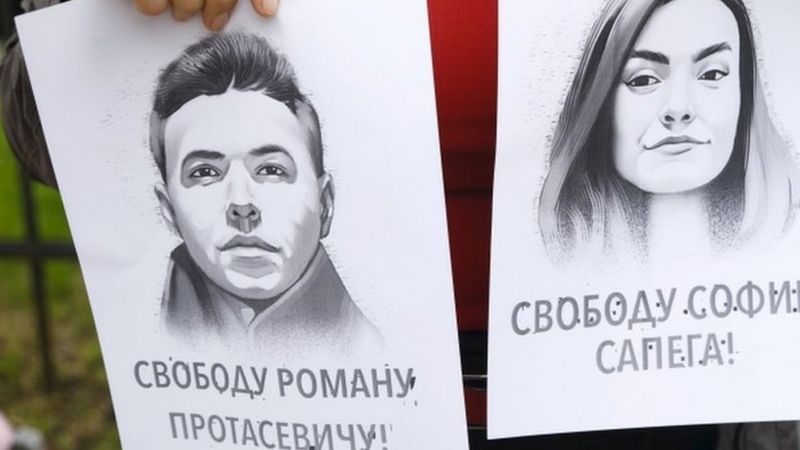
The Belarusian authorities unleashed a major international scandal, intercepting a commercial Ryanair flight from Athens to Vilnius and forcing it to land in Minsk. Onboard the plane were journalist Raman Pratasevich and his girlfriend Sofia Sapega, who were arrested upon landing. Several Western politicians called the incident an act of state terrorism. The EU summit participants decided to ban Belarusian airlines from their countries and also recommended European carriers not to fly over the airspace of Belarus. 51-year-old political prisoner Vitold Ashurak, who had no prior health problems, suddenly died in prison.
- More: Discover Belarus, “the country of nine million hostages,” with Belarusian writer Andrei Khadanovich
- The Lukashenka regime outlaws “unsanctioned” rallies, doubles down on media repressions
- No, Belarusian dissident Protasevich is not a neo-Nazi. But the Kremlin sure wants you to think so
- World must respond as strongly as possible to “Belarusian Milošević” – Ukrainian NGOs
June 2021
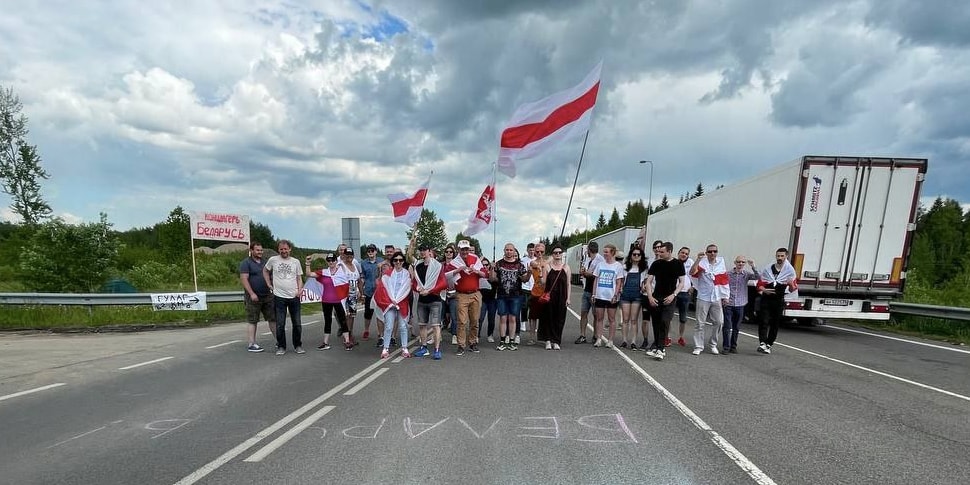
UN experts issued a statement describing Belarus as a “black hole” for media freedom. Political prisoner Raman Pratasevich gave an interview on state television clearly under duress, professing his guilt in organizing mass riots and criticizing the opposition. For the first time, the EU approved sectoral sanctions against Belarus in response to the ongoing repressions against civil society, democratic opposition and journalists, as well as the forced landing of the Ryanair flight. Following Aliaksandr Lukashenka’s threats to weaken control over illegal migration in response to the EU sanctions, the number of migrants from the Middle East and Africa virtually exploded on the western borders of Belarus, especially on the border with Lithuania.
July 2021

Dozens of non-governmental organizations were closed down as the result of a civil society sweep operation that followed a massive crackdown on independent media. More than 200 searches were carried out in activists’ and journalists’ offices and homes. Sviatlana Tsikhanouskaya paid a two-week visit to the United States and met with President Joe Biden. The Lithuanian Parliament recognized the actions of the Belarusian authorities in support of the increasing surge of migrants as “hybrid aggression”. For the first time in Belarus, the number of political prisoners exceeded 600 people.
- More: Former TUT.BY journalists launch new website as Lukashenka regime smothers free press
- After gutting independent media, Lukashenka regime comes after human rights activists
Read also:
The year that changed Belarus: where Lukashenka’s regime stands after a year of protests



